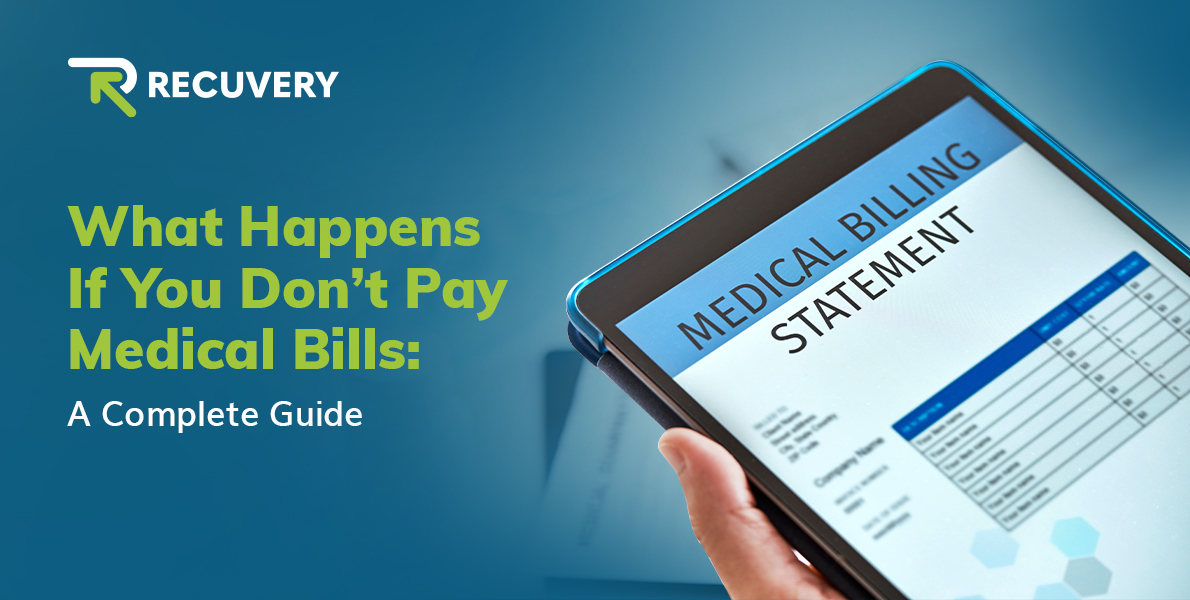What Happens If You Don’t Pay Medical Bills: A Complete Guide

Medical bills often arrive when you least expect them. And it’s easy to feel anxious when you see the total amount and think about what happens if you don’t pay medical bills. But rushing to pay without checking the details can lead to costly mistakes.
You should always understand what you’re paying for before making a move. This guide helps you see what happens if medical bills go unpaid and how you can handle them smartly. It also explains how to talk to your provider, plan your payments, and stay financially safe.
What Happens If You Don’t Pay Medical Bills: Understanding the Responsibilities
Bills can sometimes have errors, duplicate charges, or missing insurance payments. You need to ask for an itemized bill that shows each service clearly. Then compare it with your insurance statement to see what was covered.
Make sure the bill belongs to you and matches the care you received. If something doesn’t look right, ask the billing department for a written explanation. And don’t make any payments until you get clear answers.
If your insurance didn’t cover something it should have, follow up immediately. Sometimes claims are denied by mistake. But they can be fixed easily. Check the denial codes and see if you can appeal or resubmit them. And keep records of every call, email, or document you exchange.
Unpaid Medical Bills Consequences: Your Debt Stays Until You Deal With It
Unpaid medical debt doesn’t simply vanish with time. It stays until you take action. The longer you delay payment, the more serious the consequences become. You might deal with collection calls, extra fees, or a drop in your credit score. And once it starts, fixing it takes more time than you think.
➮ Debt Collectors Start Chasing the Balance
Hospitals try to collect payments on their own at first. If that fails, they often sell your unpaid bills to collection agencies. This usually happens after about 90 days of no payment.
Once it does, expect calls, letters, and constant reminders to pay your dues. Collectors don’t stop easily because that’s their job. And dealing with that pressure can feel exhausting.
➮ Interest Slowly Builds Up
Unpaid medical bills can quietly grow every month. If your provider adds interest, the total amount keeps increasing. It may not look like much at first, but it adds up fast. You can check your treatment agreement to see if interest applies. Knowing it early helps you plan your payments better.
➮ Late Fees Make the Bill Heavier
Hospitals often add late fees if your payments are delayed. These extra charges increase your balance. You’ll usually find details about them in your billing or consent forms. Always read those documents carefully before any treatment. And if you’re unsure, speak to a patient advocate or billing advisor. They can help you understand your options.
➮ Credit Score Takes the Hit
Medical debt used to impact credit reports heavily. If your bill stayed unpaid for more than 180 days, it got reported. Once listed, it remained on your report for up to seven years.
That made it difficult to get loans or new credit cards later. But things have changed a bit since 2023. Now, most medical debts under $500 are no longer reported. Still, unpaid bills over that amount can affect your credit score.
Can You Negotiate Medical Bills: Not Every Medical Bill Needs to Be Paid as It Is
Medical bills can often be adjusted or managed if you act early. Here’s how you can handle them in a simple and practical way.
▪ Talk to Your Provider Before You Pay
You don’t always have to pay the full amount on your bill. Many hospitals and clinics are open to discussing flexible payment options. Ask if they offer a discount for upfront or early payment. Some even have financial assistance programs. It’s better to talk early and explain your problem clearly. When you show interest in paying, providers are more willing to help.
▪ Break the Bill Into Smaller Parts
If paying at once feels impossible, you can ask for a payment plan. Many providers allow monthly payments that make things easier to manage. Some plans come without interest, which helps you save money over time. Before you agree, make sure you understand all the terms clearly.
Ask if there are any hidden fees or penalties for missed payments. Breaking your bill down helps you stay consistent and stress-free.
▪ Use Medical Credit Cards Wisely
You can also try using a medical credit card for short-term relief. These cards usually offer zero-interest periods for a few months. But once the offer ends, the interest can grow quickly. If you choose this option, clear the balance before interest applies. It’s useful for emergencies, but not a long-term solution.
▪ Settle If Your Bill Reaches Collections
If your unpaid bill is sent to a collector, you still have choices. You can negotiate and settle the debt. Some collectors accept a lump sum or a short repayment plan. Make sure you get every agreement in writing before paying anything.
▪ Think Before Taking a Loan
A personal loan might look like a quick way out. But loans can become expensive because of interest and extra charges. Compare different lenders and check how much you’ll pay in total. Loans should be your last option. If you plan your payments carefully, you can avoid long-term debt.
▪ Stay Organized and Take Action Early
Keep your bills, receipts, and letters in one folder. Write down every call or meeting related to your medical payment. It helps if any confusion or dispute comes up later. Staying organized also gives you peace of mind. And acting early always makes it easier to find a solution.

Discover How Flexible Payment Plans Works in Debt Collection
Read Our GuideGetting Ready for Future Medical Bills
Medical bills can surprise anyone. They show up when you least expect them. Planning early helps you stay prepared and avoid falling into debt or loans. Being ready means less stress when health costs appear suddenly.
✦ Why You Should Open an HSA or FSA
A Health Savings Account (HSA) or a Flexible Spending Account (FSA) can help you manage medical costs better. These accounts let you save money before taxes, so you pay less overall. You can then use that money for approved health expenses without paying extra tax.
An HSA also lets you invest and grow your savings over time. It’s called “triple-tax advantaged” because you save before tax, grow tax-free, and withdraw tax-free for medical use. You can keep your HSA funds every year, while FSAs usually reset. Some employers even add to these accounts, helping your savings grow faster.
✦ How an Emergency Fund Can Help You
Even if you don’t have an HSA or FSA, you can still prepare. Start an emergency fund for sudden health costs. Begin with $500-$1,000 and slowly build it up. This fund becomes your safety net when something unexpected happens.
✦ A Smart Way to Stay Ready
Keep a small part of your savings just for health needs. This helps you manage doctor visits or prescriptions without touching your main fund. Staying prepared gives you peace of mind and confidence, no matter what comes your way.
The End Note
Medical bills don’t wait for the right time. They appear suddenly. And add more pressure to your routine expenses. But rushing to pay without checking details can lead to mistakes.
You should know paying smart helps more than paying fast. When you plan early and stay aware, you handle your bills better. It keeps your finances balanced and reduces stress in the long run.
FAQs
1. What Happens If I Don’t Pay My Medical Bills?
Your unpaid bills may be sent to collections, hurting your credit health. It’s smarter to talk to your provider early before that happens.
2. How Long Do I Have to Pay a Medical Bill?
Most providers expect payment within 30–90 days after you’re billed. Contact them early if you need extra time or a payment plan.
3. What Happens If You Don’t Pay Hospital Bills on Time?
Hospitals can involve collection agencies once payments are long overdue. This can affect your finances and increase stress through constant reminders.
4. Do Medical Bills Have Interest Charges?
Some hospitals charge interest when bills remain unpaid for several months. You can avoid this by setting up a timely payment arrangement early.
5. Is There Interest on Medical Bills If You Delay Payment?
Interest depends on your provider’s billing policy and contract details. Always read your documents carefully or ask before you agree to pay.
6. How Long Do You Have Before Medical Debt Affects Credit?
Usually, unpaid medical debt appears on credit reports after 180 days. Paying or arranging plans early can prevent long-term credit damage easily.
7. How to Get Help with Medical Bills You Can’t Afford?
Look into hospital financial aid, nonprofits, or government assistance programs. Many also offer discounts or hardship plans if you request them early.
8. How to Negotiate a Hospital Bill Without Hurting Relationships?
Be polite and honest about your situation when discussing the charges. Ask for early-payment discounts or income-based adjustments before paying anything.






